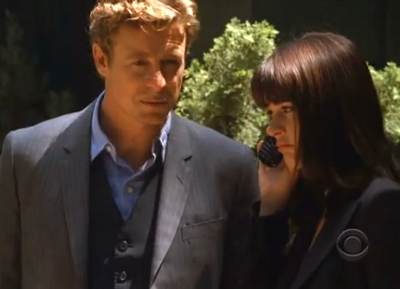Breaking Bad’s Walter White (Bryan Cranston) is an absolute masterclass when it comes to character development. He was initially introduced as your average, run-of-the-mill high school chemistry teacher who’d been dealt a bad hand in life. Diagnosed with terminal cancer, he gets into the meth business to secure his family’s future. It’s a bit of a messed up situation, sure, but in a dog-eat-dog world, it can be perceived as a relatively noble quest to leave money for his family after he’s gone.
However, it soon becomes clear that Walt is a time bomb tick-ticking away. By the end of the series, he turns into a full-on monster — he becomes an abusive husband, poisons an innocent kid, and even blows up a nursing home. And that’s not even the crux of what he does to Jesse (Aaron Paul). In this article, we’re breaking down what truly made Walt tick. In other words, why did Walter White really “break bad”?
Walter Despised Being Underestimated and the Drug Empire Became His Stage for Redemption

From the outset, Walt’s life felt like a series of missed chances and unfulfilled dreams. He had prematurely sold his share of Grey Matter Technologies for a mere $5,000 — a company that was founded on his work and later turned into a multi-billion-dollar enterprise. On top of that, working two dead-end jobs, one at a car wash and the other as a chemistry teacher, only fueled his insecurity. Things weren’t any better at home. His brother-in-law, Hank (Dean Norris), constantly undermined him. And his own son, Walter Jr., looked up to Hank more, and that further fueled Walt’s sense of emasculation. And even at Walt’s 50th birthday party, Hank remained the center of attention throughout.
A perfect example of Walt’s resentment with being underestimated came in Season 1, Episode 6, “Crazy Handful of Nothin’”. During a poker game, Hank joked that Walt wouldn’t recognize a criminal if one were to give him a hernia exam. This clearly got to him, but Walt stayed quiet. In the next round, he took Hank down with a genius bluff when Hank had an ace and a king. This showed how desperately Walt wanted the world to acknowledge his brilliance and how tired he was of being underestimated. Another prime example was when Skyler pushed Walt to turn himself in, saying he was in way over his head and Walt snapped. This was when we got the iconic “I am the Danger” monologue.
Walt had always craved validation for his genius, and breaking bad was his ego boost. It wasn’t about money. It was about proving his worth and showing that he could excel in a world that had consistently overlooked him. It was about the power that came with being a drug kingpin. It was about the intoxicating high that came from escaping Hank and the DEA time and time again. In the criminal underworld, Walt was no longer a nobody. He was feared. He was respected. He was Heisenberg.
Walter’s Craving for Agency Turned Him Into a Monster

Almost every evil thing Walt does seems to circle back to his desperate need for control. Take the time he held Krazy 8 (Maximino Arciniega Jr.) captive. At first, he was torn about whether to let him live or not. But the moment he realized Krazy 8 kept a shard of a plate, it was like a switch flipped. Walt realized he was not in control anymore and strangled Krazy 8 to death. Similarly, when Gus (Giancarlo Esposito) attempted to replace Walt with Gale (David Costabile), Walt orchestrated Gale’s murder to secure his position. And when Jesse started slipping away, Walt poisoned Brock (Ian Posada) to pull him back in.
Plus, each time Walt felt like he was losing control, he lashed out. He acted on impulse, like a child throwing a tantrum. For example, when Skyler (Anna Gunn) kicked him out, he tried to win her back by bringing pizza. But she refused to let him in the house, and he snapped. In a fit of rage, he threw the pizza on the roof. And later, when Skyler betrayed him, he kidnapped Holly to show Skyler and the world that he was still in charge.
The same thing happened with Mike (Jonathan Banks). Mike wouldn’t reveal the names of Gus’s imprisoned men, and Walt’s bruised ego couldn’t take it. In a desperate bid to reassert his dominance, Walt shot Mike, a decision that was both impulsive and unnecessary, as Mike was leaving the business for good.
Facing Death Also Awakened the Heisenberg Persona in Him

Many fans argue that Walt’s circumstances turned him evil, but the truth is that he always had that “Heisenberg” side lurking inside him. It was just his imminent death that brought it out. Sure, the first time he killed someone — Krazy 8 — he was rattled. But it didn’t faze him one bit after that moment. He didn’t bat an eye, just moved on like it was nothing. The same goes for when he watched Jane die. In the moment, he was scared of what he’d done, but afterward, he didn’t feel an ounce of regret. In fact, he bragged about it to Jesse.
Breaking Bad isn’t a story of “good guy turns bad.” It’s a story of self-discovery. It’s more like “unrealized bad guy” turns into “fully-fledged bad guy.” The moment Walt gets diagnosed with cancer, the moment he realizes that he’s a dead man walking and there are no more consequences to life, he starts unlocking parts of himself he didn’t even know existed. He realized he was going to die anyway, so why not play by his own rules? That’s what truly made Walter White tick. And that’s when the Heisenberg we all know and fear came to life. In the end, Walter White may not be your typical hero, but being human means he’s bound to make some bad calls. Here’s a rundown of his 10 worst decisions.
 Follow Us
Follow Us





